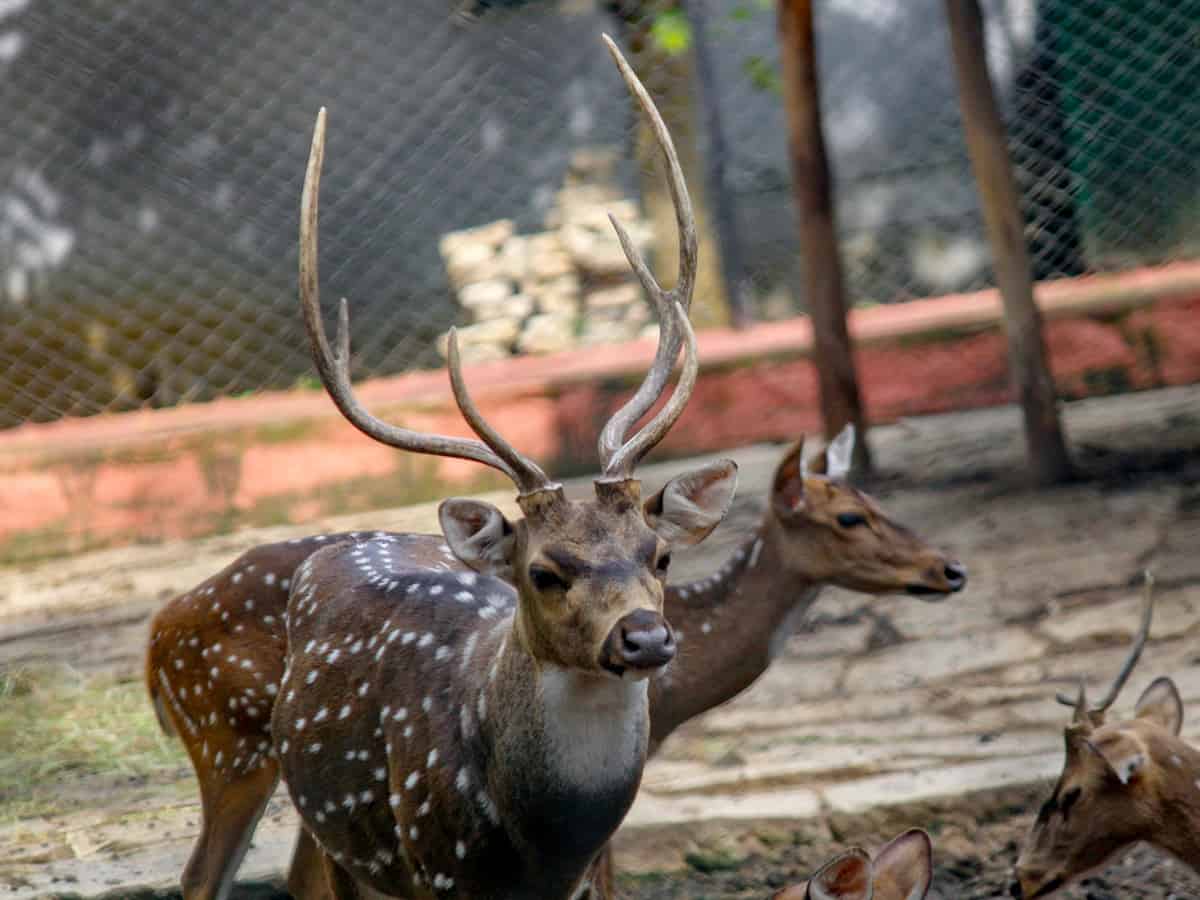
Hyderabad: The Telangana Forest Department took up a program to translocate wild herbivores from zoos and parks where there is excess population of herbivores to tiger bearing areas and other natural habitat for improving the prey base.
Recently the Department has taken up translocation of the following animals from Kakatiya Zoo Park to Eturnagaram Wildlife Sanctuary and from Nehru Zoo Park (NZP) to Amrabad Tiger Reserve.
The department released 39 spotted dear, 13 sambar deer, and six peafowls in Eturnagaram sanctuary and Amrabad Tiger Reserve.
The department in the next two months i.e., by end of March proposed to translocate over 400 spotted Deer from Nehru Zoological Park and Mahavir Harina Vanasthali National park to all the tiger bearing areas, officials informed.
Telangana State has three Zoological Parks at Hyderabad, Hanumakonda and Mahboobnagar and three Deer Parks at Shamirpet, Kinnerasani and LMD Karimnagar where the wild herbivore population is increasing at a fast rate and managing the population is becoming difficult.
At the same time there are areas like Amrabad and Kawal Tiger Reserves, Kinnerasani Wildlife Sanctuary, Eturnagaram Wildlife Sanctuary, Pakhal Wildlife Sanctuary where movement of Tiger, Panther and other wild predators is regularly noticed.
These areas have a comparatively low prey base and need strengthening.
Keeping in view the above situation, the Telangana Forest Department has taken up on a big scale, the capture and translocation of wild herbivores like Spotted Deer, Sambar, Neelgai, Black Buck etc. from Zoos and Parks for release in the Tiger bearing areas, officials stated.
Forest officials informed that due care is taken while capturing and translocating wild herbivores following the protocol laid down for translocation like – all herbivores identified for translocation are checked for communicable diseases and worms in stomach. The infected animals are administered.
Vaccines and de-worming medicines are administered a week before translocation. Further, the capture is done through the kraal method where there is no physical contact with the animal while capturing and transferring them to transport crates. Also, the transportation is taken up during the night hours in cool conditions. The vehicle carrying herbivores travels nonstop to the destination.



